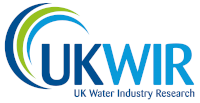Prioritisation of circular economy research opportunities for the UK and Irish water sector
09/11/2023
The transition to a circular economy water sector will require significant research and innovation. The potential benefits are enormous - as a circular economy approach can help the water sector reduce its environmental impact, reduce costs, improve resilience and become more sustainable.
The purpose of this project was to support the work of Big Question 11 - How do we maximise recovery of useful resources and achieve zero waste by 2050? And identify industry-level circular economy options that can be prioritised and unlocked
through key research streams. The project was led by BQ11 Programme Lead, Donna Rawlinson of Northumbrian Water, and delivered by WSP.
What we did:
The project had three objectives:
assess the current maturity of water companies’ CE approach through a series of interviews, using a proprietary matrix created by WSP.
Collate a list of innovation projects currently underway in companies relating to the circular economy, and compile into an innovation heatmap.
Assess ongoing research globally and create a list of research opportunities.
What we found:
The collective maturity of the water industry was assessed as developing, with a higher level of maturity for system thinking, collaboration and innovation principles. There is clear evidence that the maturity is trending upwards.
The maturity assessment and heatmap highlight the importance of UKWIR’s role in the circular economy, such as providing research through collaboration and dissemination of knowledge, including supporting water companies to assess the most relevant resources to target and developing a unified and reportable set of circular economy metrics.
For more information see the full report - Prioritisation of circular economy research opportunities for the UK and Irish water industry 23/SL/12/05 - visit this link.
